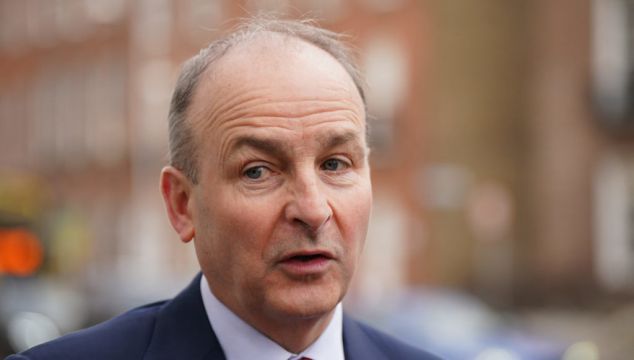Tánaiste and Minister for Defence Micheal Martin has defended a decision taken by the Government to approve Irish soldiers providing training to Ukraine, saying that it was a “very modest contribution”.
The State has maintained a policy of providing humanitarian assistance to Ukraine, such as medical equipment, food parcels and body armour.
Government ministers have said that despite our neutrality, the State is not politically neutral on the issue of Russia’s invasion of Ukraine.
On Tuesday, the Government agreed for up to 30 Defence Forces personnel to provide training to the Ukrainian armed forces as part of the newly established European Union Military Assistance Mission.
The training is expected to take place in EU countries, and a small number of staff will also be based in Brussels and in Strausberg, Germany, to support the activity.
In response to questions about the move, Mr Martin defended the measure as necessary and “modest”.
“Ukraine is engaged in an act of self-defence, Ukraine didn’t invite this war,” Mr Martin told reporters.
“This war, waged by Putin and Russia on Ukraine, is a violation of the UN Charter which enshrines the basic right of any nation to its territorial integrity and to its sovereignty.
“Our military neutrality is defined – we’re not members of Nato and we’re not members of the EU’s (Common Security and Defence Policy).
“What’s envisaged here is a very modest contribution to training Ukrainian defence personnel, particularly in certain areas where we could have some added value to bring, such as medical combat and engineering, training in that area; explosives ordnance in terms of de-mining, but also in terms of cluster munitions and unexploded ordnances which can be very damaging to civilian populations in the aftermath of bombardments and attacks.
“So it’s an area where we think we can add, it’s non-lethal.”
He said that since the war began last February, the State has provided €77 million of support through the European Union, but it has been confined to non-lethal supports
“Training falls into that category,” he said.
“Given the enormity of the needs on the ground – and this battle, as much as all of the lethal support that other countries are providing – in terms of logistics, engineering, foods supplies, very essentials – I think we do have to make a contribution to supporting the people to withstand the enormous bombardment that they are under.
“This is a war on people, and civilian power facilities,” he said.
The Council of the EU launched the European Union Military Assistance Mission (EUMAM) in support of Ukraine, with the aim of enhancing Ukraine’s military capability to defend its civilians and territory within internationally recognised borders.
EUMAM has a mandate to provide training to up to 15,000 Ukrainian Armed Forces personnel.
The mission is already up and running, and operates on a needs-based approach based on the Ukrainian military’s requirements.
It is expected that Defence Forces will begin the training as soon as the needs of the Ukrainian armed forces are matched to what is on offer from Ireland.







